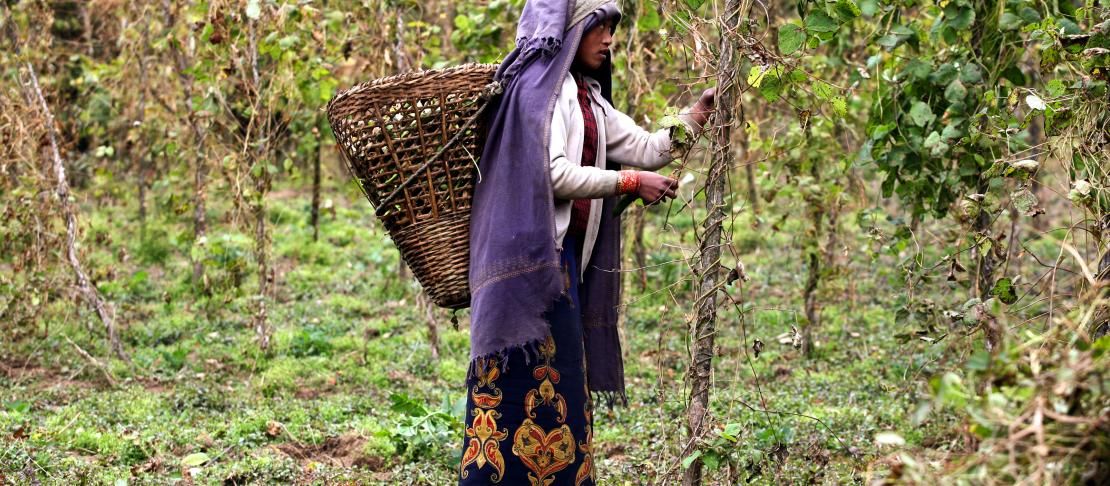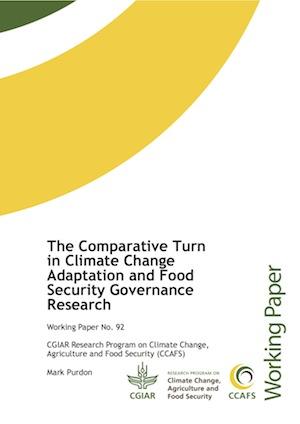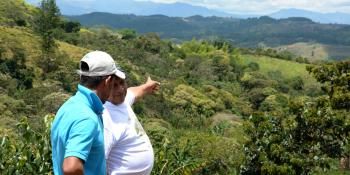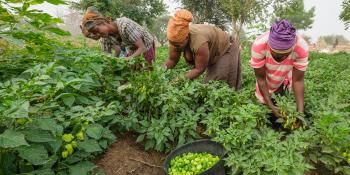Comparative politics role in studying climate adaptation and food system governance

What role does comparative politics play in studying global environmental issues like climate change and food systems?
In a working paper recently published by CCAFS, I describe political factors that are likely to be important in shaping the governance of climate change adaptation and food systems, drawing on concepts and methods of comparative politics.
Comparative politics is emerging as an exciting new approach for the study of global environmental issues.
As leading experts have recently stated, “Comparative environmental politics will likely constitute one of the leading edges of the next generation of research on global environmental politics and environmental studies.”
New ways of thinking about governance
 |
Comparative politics challenges researchers interested in the governance of food security and climate change adaptation to expand their conceptual horizons. As I demonstrate in the working paper, research in these area has tended towards a form of analysis that privileges formal institutions.
The underlying assumption here is that governance is problem that can easily be resolved through institutional reform.
While institutions clearly remain important, the working paper, entitled "The Comparative Turn in Climate Change Adaptation and Food Security Governance Research" (PDF) also argues that greater incorporation of interests and ideas into the analysis of climate change adaptation and food security governance promises to render research more effective.
While this blog focuses on institutions, interests and ideas, comparative politics should not be considered to focus exclusively at the domestic political level, for which reason it is also important to explore the relationship between domestic and international politics and implications for multilevel governance.
Indeed, comparative politics is increasingly being considered in an integrated manner with that other important sub-discipline of political science, international relations, and embraced discussion of the relationship between international and political factors.
Institutions
The problem with a focus on institutions is that they are not uniform around the world. In the developing world, where CCAFS seeks to incite change, the role of formal institutions may diverge quite significantly and systematically from how they function in highly developed countries.
At the same time, informal institutions are often considered to play a larger role in the developing world, yet because their dynamics are opaque to outside observers, this is too often dismissed as “neopatrimonialism”.
There is increasing recognition that this latter term has been used too broadly and unreflectively to diagnose governance challenges in the developing world. Another related issue is whether informal institutions should be themselves formalized. Critical reflection on how institutions actually work in the developing world is warranted.
Interests
As used in the comparative politics literature, interests refer to the “real, material interests of the principal actors, whether conceived as individuals or groups.” Interests at play in climate change politics can be more complex than much of the climate change adaptation and food security literature tends to assume. This is because climate change is but one of many factors that affect the aggregate interests of any state, societal or market actor.
The relationship between these groups of actors is complex, often involving competing political factions rooted in societal interests that may remain opaque to outside observers. New ways of thinking about interests in comparative politics include the concept of political settlements as well as relationship between the state and other social classes, which can be described as state power for development.
In concluding this section, it would be prudent for those concerned about climate change adaptation and food security governance not to expect a radical transformation of existing power structures for climate justice. Rather, there is a need to calibrate expectations in light of entrenched political interests, such as through the notion of “good enough governance”.
Ideas
The final political factor to which we turn is ideas, which is really at the cutting edge of comparative politics. The logic here is that, because politics is a social process, ideas are necessarily prior to institutions and interests. The political saliency of institutions and interests depends on ideas held by political actors about them in the first place. Pushing the envelope, political actors might not fully articulate these ideas, which instead emerge in practice on the basis of background logic and experience.
Importantly, comparative political scientists deploy ideas differently than in other social sciences--they use ideas to make causal arguments. Ideas can and do become embodied in physical structures, media, actions as well as, importantly, in other human beings.
Thinking about ideas in this way might be new for some. As an illustrative example, consider how various political actors perceive the legitimacy of a fertilizer voucher system. It is quite easy to image that the perceived legitimacy of such a policy will vary according to the personal experience and education of the political actors involved, in addition to their interests and institutional environment.
There might be organizations built around such ideas, for example, a Fertilizer Voucher Association. To create positive change, it might be important to focus at the level of ideas.
New ways of doing governance research
One reason for rising interest in the application of comparative politics towards climate change politics has been recent innovations in comparative political methodology and philosophy of science that have expanded its scope application.
Most important has been new thinking about causal analysis in low-N comparative research, in a departure from previous approaches that privileged large-N quantitative analysis as the most appropriate model for such qualitative research. This is not to say that large-N studies are without utility. Indeed, one of the hottest areas of political science research is to determine if low-N comparative methods are as robust as their large-N counterparts.
Yet new qualitative approaches are helpful in new policy areas such as climate change adaptation and food security where there is often limited data available for regression analysis. While there are important recent exceptions, too much of the existing research into climate change adaptation and food security has been comprised of unstructured, single case-studies.
Under such circumstances, comparative low-N research is very promising: “Policymakers and others working in the public interest want to learn about the art of the possible, and the risk of the unthinkable, not just the trend line of the probable.”
Recommendations for Future Research
The working paper closes by making five recommendations, all which harness its main insight—the importance of considering institutions, interests and ideas together—towards research into the governance of climate change adaptation and food security.
The first two recommendations speak to concepts of comparative politics. First, there is a need to identify new dimensions of institutional research, particularly in order to address issues of formal/informal institutions, community-based/individualized institution and the importance of the state. Second, lack of attention to interests and ideas reveals a disconcerting tendency to privilege a form of normative analysis focusing on institutions. The risk is to treat governance issues superficially, as ones requiring only cosmetic changes to formal rules and organizations, and for researchers to remain unaware of deeper political factors.
The next two recommendations are related to methods of comparative politics. First here, it would be important to more explicitly deploy comparative methods in the analysis of the governance of climate change adaptation and food security. While single cases-studies offer considerable insight into understanding a particular case, they lack comparisons necessary for addressing larger issues of causality and theory generation that are more politically salient.
Second, related to the above, is the so-called dependent variable. Without agreement on what the outcomes of adaptation interventions should be nor how to measure them, there is considerable risk that research will waste resources or even lead to conditions maladaptation if research leads to policy changes that prove ineffective. Arguably, comparative methods will sharpen our analytical minds about what adaptation really means.
Finally, a research program on the governance of climate change adaptation and food security implies a standard against which governance is to be evaluated. But what should this standard be and how tolerant development practitioner community should the international community be of governance deficits that undoubtedly will be encountered once climate change adaptation and food security measures are examined closely? These questions are best addressed through the concept of “good enough governance”. The key is to understand how various political factors—institutions, interests and ideas—combine in different contexts in order to shape what forms of governance are feasible.
Learn more:
- What role do institutions and governance structures play for climate-resilient food systems?
Mark Purdon is an expert on climate change policy and international development, working at the intersection of comparative politics and international relations. He is currently a visiting fellow at the Centre d’études et de recherches internationales Centre for International Studies (CÉRIUM) at the University of Montreal.
If you use the Working Paper in your own research, or have an interest in governance and policies linked to climate-resilient food systems, please get in touch with us! Contact: Wiebke Förch: w.foerch[at]cgiar.org



